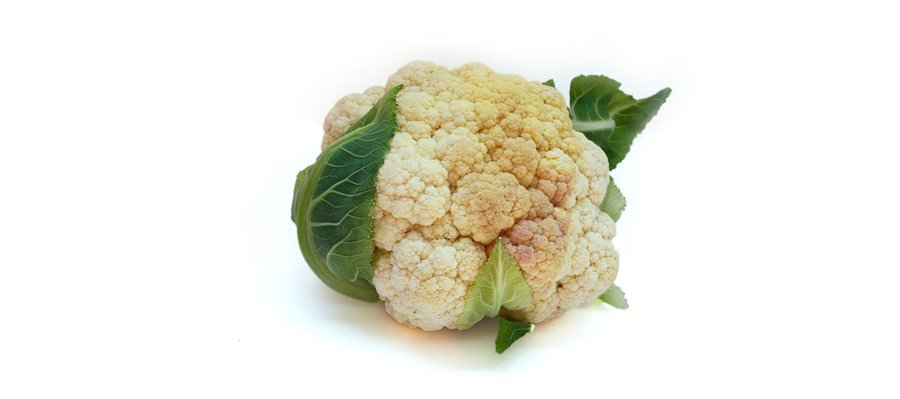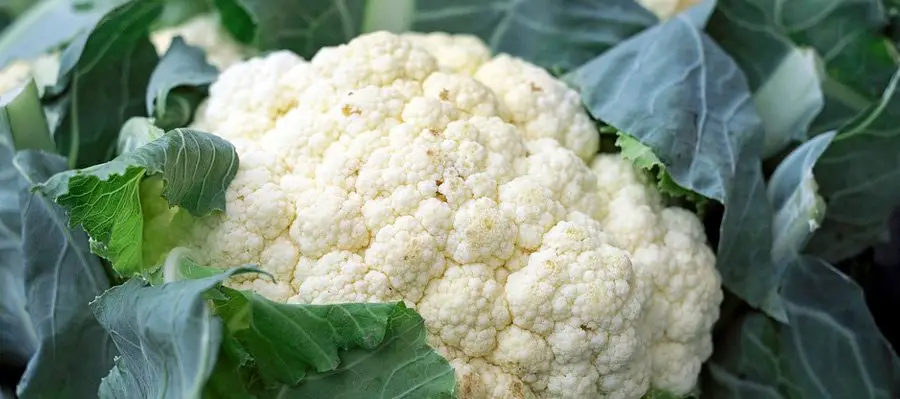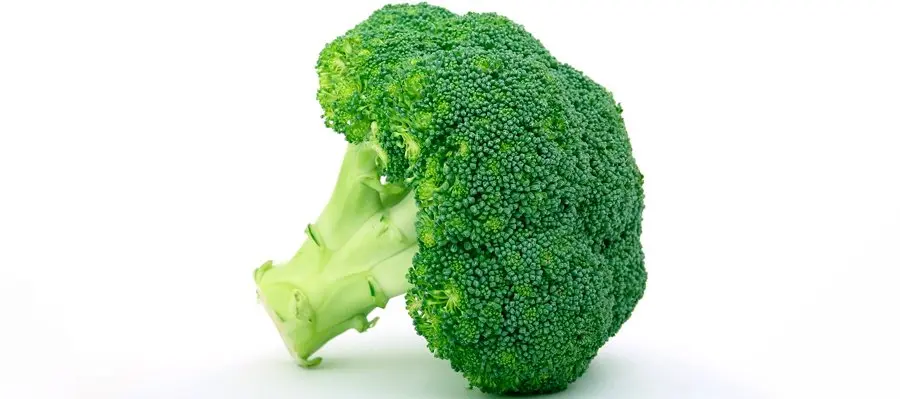Here’s the answer to «can dogs eat cauliflower?»
As responsible pet owners, it’s important to ensure that our furry friends receive a balanced and nutritious diet. While dogs primarily thrive on a diet that consists of high-quality animal proteins, it’s natural to wonder if certain vegetables, such as cauliflower, can be included in their meals. In this article, we will explore whether dogs can safely consume cauliflower and its potential benefits and risks.
Can dogs eat cauliflower?
Índice de contenido

Can dogs eat cauliflower safely?
Cauliflower is a cruciferous vegetable packed with essential nutrients. It contains fiber, vitamins C and K, folate, and minerals such as potassium and manganese. Additionally, cauliflower is low in calories, making it an excellent choice for humans seeking a nutritious, low-calorie option. However, when it comes to dogs, their nutritional requirements differ from ours.
Dogs and Digestive Health:
Unlike humans, dogs are primarily carnivores, with a digestive system that is more suited to processing animal proteins. While dogs can benefit from a small amount of fiber in their diet, too much fiber can cause digestive upset. Cauliflower is relatively high in fiber, which could potentially lead to gas, bloating, or diarrhea in some dogs, especially if fed in large quantities.
Crucial Considerations:
When introducing cauliflower to your dog’s diet, there are several key factors to keep in mind:
Moderation is key: Cauliflower should only be given to dogs in moderation. Treat it as an occasional addition rather than a staple food in their diet.
Preparation and cooking: Raw cauliflower can be difficult for dogs to digest. It is best to steam or boil cauliflower before serving it to your dog, as this helps break down the fibrous structure and makes it easier to chew and digest.
Serving size: Start by offering your dog a small amount of cooked cauliflower as a trial. Monitor their response and observe for any signs of digestive issues or allergies. If all goes well, you can gradually increase the serving size.
Individual sensitivities: Every dog is unique, and their tolerance to different foods can vary. Some dogs may have allergies or sensitivities to cauliflower or other vegetables. If you notice any adverse reactions, such as vomiting, diarrhea, or excessive gas, discontinue feeding cauliflower and consult your veterinarian.
You might also like: Can dogs eat broccoli?

Benefits of cauliflower for your dog
While cauliflower should only be given to dogs in moderation and after considering their individual needs and sensitivities, there are potential benefits to dogs consuming cauliflower. Here are a few benefits:
Low in calories: Cauliflower is a low-calorie vegetable, making it a suitable option for dogs on a weight management plan. It can be a healthy addition to their diet without contributing excessive calories.
Nutrient-rich: Cauliflower is packed with essential nutrients such as vitamins C and K, folate, potassium, and manganese. These nutrients can support overall health and contribute to a well-rounded diet for dogs.
Antioxidant properties: Cauliflower contains antioxidants, including phytochemicals such as glucosinolates and isothiocyanates. These compounds help combat oxidative stress and reduce inflammation in the body, potentially supporting immune function and overall health in dogs.
Fiber content: While too much fiber can cause digestive upset in dogs, a small amount of dietary fiber can be beneficial for their digestion. Cauliflower contains fiber, which can help regulate bowel movements and maintain a healthy digestive system.
Variety and texture: Introducing different vegetables, including cauliflower, can add variety and texture to a dog’s diet. This can make mealtime more enjoyable and provide mental stimulation for dogs.

Risks of giving cauliflower to your dog
So now that you know the benefits to «can dogs eat cauliflower» here’s some risks to consider:
Digestive upset: Cauliflower is relatively high in fiber, which can be challenging for some dogs to digest, especially in large quantities. Consuming too much fiber can lead to gas, bloating, or diarrhea in some dogs. It’s important to introduce cauliflower gradually and monitor your dog’s response to ensure it agrees with their digestive system.
Allergic reactions: Dogs, like humans, can have allergies or sensitivities to certain foods, including vegetables like cauliflower. If your dog has never consumed cauliflower before, start with a small amount as a trial. Watch for any signs of allergic reactions, such as itching, hives, swelling, or gastrointestinal issues. If any adverse reactions occur, discontinue feeding cauliflower and consult your veterinarian.
Potential for choking or blockages: Cauliflower can present a choking hazard, especially if given to dogs in large, uncut pieces. It’s important to properly prepare cauliflower by steaming or boiling it until soft and cutting it into small, manageable pieces to minimize the risk of choking. Additionally, the fibrous texture of cauliflower could potentially cause blockages in the digestive tract if consumed in excessive amounts or in large chunks.
Interference with medication: Some vegetables, including cauliflower, contain compounds that can interfere with certain medications. If your dog is on any medication, it’s essential to consult your veterinarian before introducing cauliflower or any new food to their diet to ensure it won’t interact negatively with their medication.
Individual dietary needs: Every dog is unique, and their nutritional requirements may vary. While cauliflower contains some beneficial nutrients, it should never replace the main source of nutrition in a dog’s diet, which should primarily consist of high-quality animal proteins. It’s crucial to consult with a veterinarian who can provide tailored advice based on your dog’s specific dietary needs and health condition.
Conclusion
While cauliflower is a nutritious vegetable for humans, the answer of «can dogs eat cauliflower» is a bit different, its suitability for dogs requires caution and moderation. Some dogs may tolerate cauliflower well, while others may experience digestive issues. Always introduce new foods gradually and observe your dog’s response. If you have concerns or questions about your dog’s diet, consult with a veterinarian who can provide tailored advice based on your dog’s specific needs. Remember, a well-balanced diet for dogs primarily consists of high-quality animal proteins, so cauliflower should never replace their main source of nutrition. So there’s the answer to «can dogs eat cauliflower»







Comentarios recientes